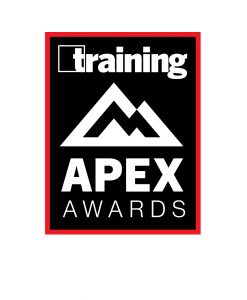
The Quality Partner Coaching program at Johns Hopkins Medicine trains call center agents on how to master the perfect call and helps coach them in monthly sessions to reinforce that training and provide one-on-one staff support.
Program Details
Evaluating patient calls is broken up into two parts: quality monitoring and a technical audit. When Quality Partner (QP) staff (what the organization calls its Quality Assurance staff) are trained in monitoring calls, they use the Call Monitoring tool that evaluates the call on five criteria:
- Greeting: “Hello! Thank you for calling [our organization]!”
- Bridge: Required HIPAA verification, using empathy effectively with the caller
- Call Resolution: Asking probing questions and verifying information
- Summary and Closing: Summarizing the call details and thanking them for calling
- Professionalism and Call Control: Using proper hold and transfer procedures, active listening skills, and a using professional tone throughout the call
The monitoring tool was created in-house by a workgroup consisting of Patient Access call center agents and department managers; Johns Hopkins Medicine’s director of Talent Development, Training, and Quality Assurance; Quality Partners; and training staff.
Quality Partners are assigned to different agents per department and use the tool to monitor five random calls per agent each month.
The other part of call evaluation is the technical audit. The Quality team identified that call quality was not enough to judge call accuracy—they needed to see how the agents were inputting information into the Epic system. The organization searched for an external system, but nothing was able to do exactly what it needed. So with the help of a Hopkins system architect, the Patient Access Quality team created the TRACE (Training Resource: Audits & Customer Service Evaluation) audit tool. This tool uses video capture to sync up with the call audio to show the QPs how accurately the agents input the information into the system while talking on the phone.
In monthly coaching meetings, QPs meet with staff to review their quality monitoring score and their TRACE audit score. QPs are trained to coach agents with empathy, support, and open dialogue. If an agent needs additional support or a training refresher, they are assigned one of a number of different interventions, including job aids, small group meetings revolving around a specific skill (such as hold and transfer), or a side-by-side with a member of the Training staff.
The QPs also meet weekly as a group to do call calibrations, ensuring that the scoring is consistent and accurate across the Quality team. The call monitoring tool is evaluated and revised if new best practices come to light or scoring is deemed inconsistent or requires revision.
In addition to hosting employee engagement events multiple times a month, QPs host “Spin Days.” This allows agents to use their accumulated “Star Cards” that they received from QPs, managers, and other agents for superior calls and other excellent work they’ve performed. Spin Days are set up about every eight weeks and allow agents to redeem their Star Cards for points where they “purchase” items from the “Spin Day store” (items found by the Training staff and brought in to be “bought”). Spin Days are announced the day before and generate a significant amount of enthusiasm.
Results
The average quality score in 2021-2022 for all departments was 88 percent, with all departments scoring at least 80 percent, achieving the organization’s goal. Out of 11,000 calls in fiscal year 2019-2020, only 144 were HIPAA autofails (2 percent).




